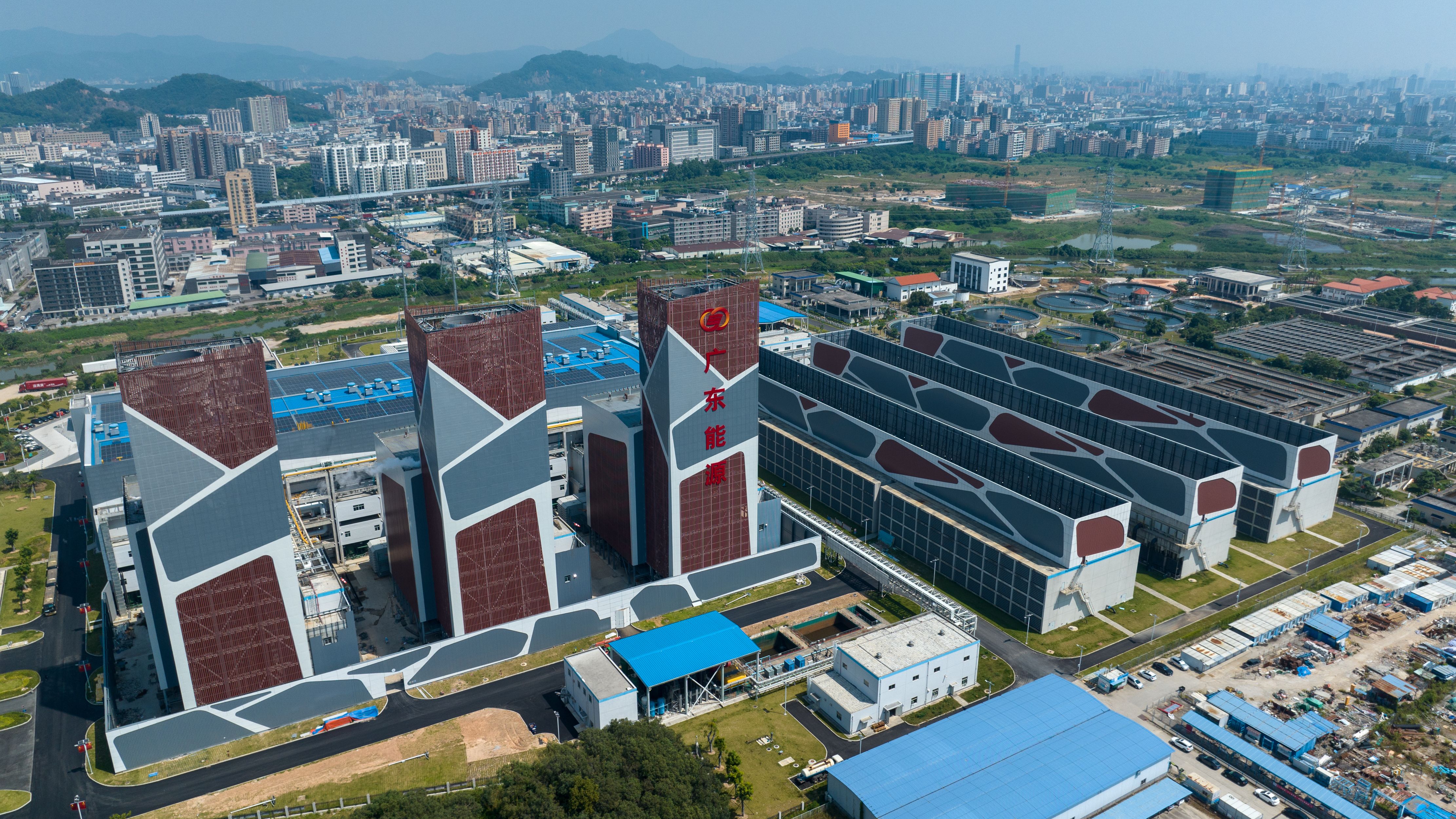9HA.02 Gas Turbines Drive Power Generation at Chinese Combined-Cycle Facility

A New Era for Energy Production: GEG's Dongguan Ningzhou Power Plant Commences Operations
In a significant stride toward enhancing energy sustainability, the Dongguan Ningzhou combined-cycle power plant has officially commenced operations in Guangdong province, China, under the auspices of Guangdong Energy Group (GEG) and utilizing advanced technology from GE Vernova. This state-of-the-art facility, powered by three GE 9HA.02 gas turbines, is poised to contribute an impressive 2.4 gigawatts (GW) of electricity to China’s national grid, building on the 1.34 GW generated by the existing HA-equipped Huizhou power plant. The launch of this facility aligns seamlessly with China’s ambitious Greater Bay Area initiative, emphasizing a critical shift from coal-based power generation to cleaner, more sustainable energy sources.
Xu Xin, Gas Power Services China ITR Leader at GE Vernova, highlighted the import of this facility, stating, “The Dongguan Ningzhou plant plays a pivotal role in supporting a lower-carbon and more sustainable power generation landscape within Guangdong province, situated to the north of Hong Kong in the Greater Bay Area.” This significant milestone was marked by a ceremonial launch, celebrated not only for its timely completion but also for adhering to high standards of quality and safety, attributed in part to the collaborative synergy with local partner Harbin Electric, which was responsible for the steam turbine and generator installations along with ancillary equipment.
One of the noteworthy aspects of the Dongguan Ningzhou power plant is its efficiency in reducing carbon emissions. By leveraging the latest H-class technology from GE Vernova, this facility boasts a reduction of carbon emissions by up to 60% compared to traditional coal-fired plants of a similar size. Furthermore, the gas turbines employed can utilize up to 50% hydrogen by volume when blended with natural gas, with plans in place for future upgrades to facilitate 100% hydrogen combustion. This advanced technology allows GEG to optimize fuel consumption, aligning the company’s operational objectives with global sustainability goals.
The collaborative relationship between GEG and GE Vernova has been a cornerstone in transitioning power plants from coal to natural gas, with assurances regarding future endeavors focused on achieving nearly net-zero carbon emissions. A representative from GEG expressed confidence in GE Vernova’s technology, stating, “GE Vernova has consistently been our preferred partner in transforming our energy infrastructure toward cleaner alternatives.” This partnership underscores a broader commitment within the energy sector to address climate change and reduce reliance on fossil fuels.
Beyond the Dongguan Ningzhou project, GE Vernova’s influence extends internationally, as evidenced by recent developments announced in Dubai. The company is making strides in modernizing the 4.5 megawatt Besmaya Power Plant in Baghdad, Iraq, through substantial upgrades which commenced in October. These enhancements involve the implementation of Phase 1 Advanced Gas Path (AGP) upgrades on four 9F.04 turbines, with subsequent phases aimed at boosting operational flexibility, efficiency, and power output. Phase 3 is projected to significantly abate CO₂ emissions by as much as 477,000 metric tons annually while enhancing overall efficiency metrics.
Notably, GE Vernova’s reach has also expanded into Japan with the recent order of three 7HA.03 gas turbines by Kansai Electric Power Co. for the Nanko power station in Osaka. This strategic shift aims to replace outdated conventional liquefied natural gas (LNG) assets, promoting greater operational efficacy and reduced carbon emissions.
As the global community increasingly recognizes the imperative for cleaner energy sources, China’s initiatives, embodied in projects like the Dongguan Ningzhou plant, represent a crucial step towards fostering a more sustainable and resilient energy future. The ongoing collaborations between energy firms and local governments will not only facilitate this transition but also underscore the criticality of innovative technology in addressing the pressing challenges of climate change.
In conclusion, the operational launch of the Dongguan Ningzhou combined-cycle power plant stands as a testament to the commitment of both GEG and GE Vernova to lead the charge in the energy transformation narrative—not just within China, but as a part of a global movement aimed at decarbonization and sustainable development.
Tags: #EconomyNews #RealEstateNews #China #Sustainability #EnergyTransition






